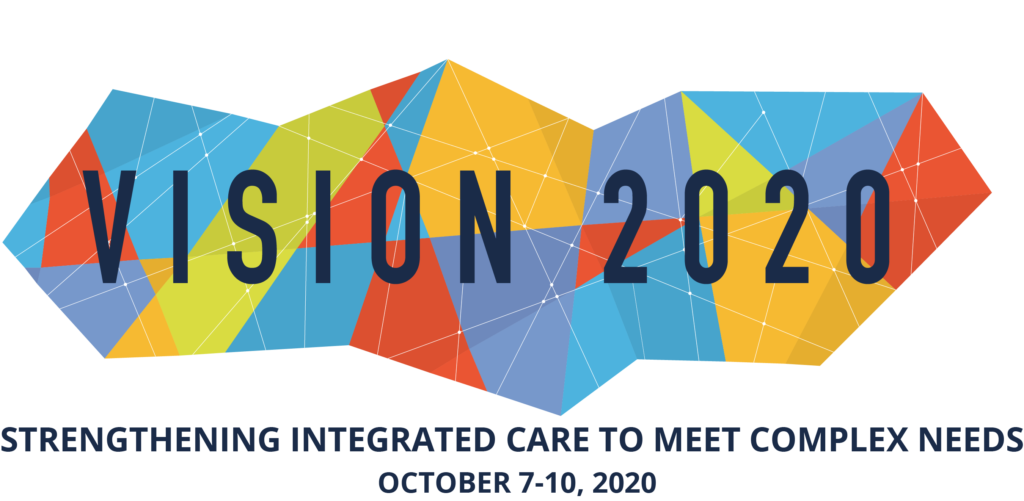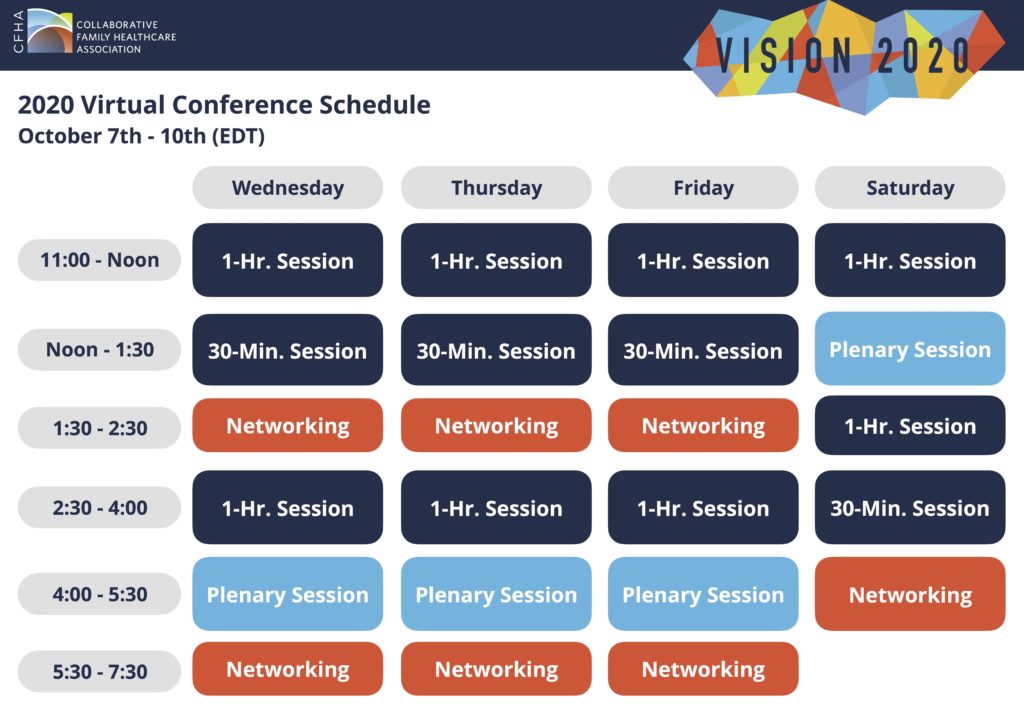
Key Info
The CFHA conference is going virtual! We are excited to show you what we have come up with for a great virtual experience. The conference will feature a combination of live sessions and recorded content including audio-only podcast style sessions for you to consume on-the-go. All content will be recorded so that you don’t have to fear missing any of the live content. Live networking and discussion times throughout will keep the same old “CFHA” feel in a virtual format. There will be over 40 continuing education credits available. Stay tuned for more information.
For pricing information, click here. For a list of the Extended Learning Opportunities, click here.
Conference Schedule

About the Conference
The Collaborative Family Healthcare Association (CFHA) hosts the premier conference for healthcare professionals and allies interested in bringing medicine and behavioral health together. As part of a suite of services, which include community building, content production and consultation services, CFHA’s annual conference has become the place to learn and network with all stripes of healthcare professionals, foundations, payers and others interested in integrated care. With over 80 sessions, over 40 CEs, and ample networking times, CFHA’s conference is the place to build lifelong professional relationships. This year’s annual conference will be a place to reflect on where we are with COVID-19 and a restructured health system still struggling to meet complex patient needs. Join your interdisciplinary colleagues as we continue to champion integrated care.
Conference Theme
Increasing pressures on primary care to screen and respond to social determinants of health (SDoH), manage patients with complex care needs, and to provide opioid use disorder care create a practice environment ripe for provider burnout. As health care teams seek to innovate and respond to these pressures with new practice models, they do so within the landscape of health policy reform heating up during the 2020 presidential election cycle and ongoing aftermath of the COVID-19 pandemic. This conference will enable implementation of evidence-based practices in IBH, OUD, and SDoH, promote the uptake of training models to enhance provider skills and prevent burnout, and explore solutions to future challenges brought on by proposed health policy reform (M4All) that address care delivery and payment systems. In addition, the impact of telehealth on team-based care will be a major focus in light of the COVID-19 pandemic.
Conference Objectives
- Learn from the early adopters of models of enhanced community-clinical linkages.
- Learn from emerging evidence on the impact of SDoH models of care on clinical and utilization outcomes.
- Learn from first responders to new policy models (AHC, CMMI, CPC+) to address the behavioral and social needs of patient populations.
We specifically want to highlight the following topic areas: managing patients with complex care needs, providing opioid use disorder care, provider burnout care and prevention, health policy reform, implementation of evidence-based practices in IBH, OUD, and SDoH, training models to enhance provider skills, solutions to future challenges brought on by proposed health policy reform (M4AII) that address care delivery and payment systems.
